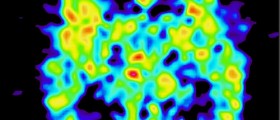
Because of the oxygen existing on this planet we are all alive, and this goes for the plants and animals as well. Our body needs oxygen so that it can function properly and without it, our brain can die. A medical name for the lack of oxygen in our brain is cerebral hypoxia. Brain cells can live without oxygen supply for only 5 minutes, and if the oxygen isn’t provided, they die out, leading our body into the death.
Signs and Symptoms of the Lack of Oxygen to the Brain
Some of the signs that can indicate the existence of cerebral hypoxia include changes in the behavior. Because of the lack of oxygen, these persons can behave in a completely different manner, as if they are in some kind of lethargy and they are not responding to a stimulus. If our brain is deprived of the oxygen for a little time, it will slowly start to shut down its functions and a person may lose consciousness. There isn’t any accurate time that has to pass from the moment of oxygen deprivation; it depends from person to person. The brain doesn’t have to be completely dead, but if it has been oxygen insufficient, it may cause a person experience coma or vegetative state. The loss of memory is another symptom that reveals cerebral hypoxia. Because of that, people who have spent some time under water deprived of oxygen can’t remember anything. The loss of memory can also occur because of the insufficient oxygen supply of the brain tissue that has died in the meantime. When this tissue dies, all the memory that has been stored there dies too.
Causes
Causes for the lack of oxygen in the brain include injuries that took place before, after or during birth and that is how insufficient oxygen supply can lead to cerebral palsy and many other complications. Brain damage can also be caused by carbon monoxide poisoning. One can be exposed to this kind of poisoning in gas water heaters, kerosene space heaters, propane heaters, and stoves, cigarette smoke, propane-fueled forklifts, gasoline powered concrete saws etc. Fire fighter can also be liable to the lack of oxygen in the brain due to asphyxiation caused by smoke inhalation, because they are often in the middle of huge fire. Some other causes include diseases like paralysis, cardiac arrest, compression of the windpipe, complications during general anesthesia and some others that occur less often.
Therefore, in case of cerebral hypoxia, the severity of the effect will be determined by the amount of time of oxygen deprivation. In some cases, a person may return to its normal life, while in others only some functions can be recovered. How long the brain has been deprived of oxygen will determine the severity of the effect.

















Your thoughts on this
Loading...